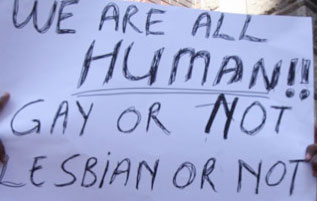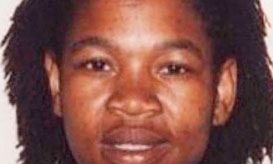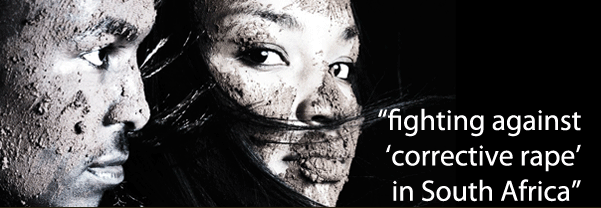BY NOREEN FAGAN – South Africa is a great place. It is rich in culture and
diversity and a beautiful country to visit. But it is also a country with a
growing problem — the “corrective rape” of lesbians.

Over the last few years, corrective rape has become a
concern in a country that has the most progressive laws on gay rights in the
world. After apartheid ended, gay rights were included in the new constitution
and, in 2006, the Constitutional Court paved the way by being the first country
in Africa to legalize same-sex marriage.
All is well and good in theory, but homosexuality still
conflicts with some of the cultural norms of the country. For some men, lesbians flout
the natural order of the world, and the only way to cure them is by raping them.
“I have no time to rape, but if another guy wants to teach
them the way…” says one man in a video taken by the Guardian newspaper in 2009
— when corrective rape was first highlighted.
Last weekend, a young lesbian activist was buried after been
raped and murdered. On April 24, Noxolo Nogwaza was found dead in an alleyway
in Kwa-Thema, a township in Gauteng province. Nogwaza — 24 years old — had been stoned, stabbed with
broken glass and raped.

Human Rights Watch claimed Nogwaza’s death to be “the latest
in an epidemic of brutal homophobic attacks.”
In Kwa-Thema alone, Nogwaza was the second known victim of
corrective rape.
In 2008, Eudy Simelane was tortured and raped before being
killed. Her body was also dumped in a public place. Although Simelane’s
perpetrators were arrested, they were cleared of committing a hate crime.
Through change.org, a small group of lesbians in the
townships of Cape Town started an online petition urging the South African
government to address the issue. The petition gathered
170,000 signatures from 163 countries, and in March 2011, the women convinced
members of parliament to develop an action plan to tackle the problem.

Now all the government has to do is start implementing it.
 Why you can trust Xtra
Why you can trust Xtra


